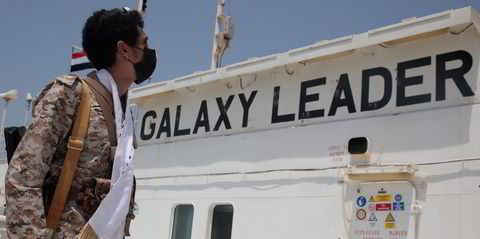Eastern Pacific Shipping (EPS) has struck a deal to splash out $522m on an order for dual-fuel vehicle carriers in China as it continues to show a hunger for newbuildings.
The Idan Ofer-controlled company has booked up to six 7,000-ceu pure car/truck carriers (PCTCs) at Jinling Shipyard.
The shipowner has ordered four vessels and signed up for options for two more.
The PCTC order lifts the company's orderbook to over 60 newbuildings.
An EPS spokesman confirmed the contract with Jinling, adding that the ships will be able to run on both LNG and conventional marine fuels.
He added that the PCTCs are scheduled to be delivered in 2024, "at the time when the shipping industry needs to renew the rapidly over-aging existing fleet of car carriers”.
Singapore-based EPS did not disclose the price for the newbuildings, but some industry sources put it at around $87m apiece.
A shipbuilding source with knowledge of the order said EPS has landed a good deal, as it started the newbuilding discussions some time ago before the hike in shipbuilding prices.
He suggested a similar newbuilding ordered today would cost $90m.
EPS said the PCTC contract is the company’s inaugural newbuilding deal with Jinling, a subsidiary of China Merchants Group.
“The order firmly places our company at the forefront of the industry’s decarbonisation efforts,” said the EPS spokesman.
“The dual-fuel vessels are part of EPS’ holistic alternative marine fuel programme, which calls for the use of a full spectrum of marine fuels to lower emissions.”
“By using the best solutions available in the market today, EPS aims to reduce its carbon footprint significantly. This holistic approach will aid the company, and industry, as it transitions towards greater decarbonisation and environmental preservation efforts.”
EPS said the PCTC order brings the total number of newbuildings it has under construction at shipyards in the Far East to over 60. They cost a total of $6bn.
“The order of the PCTCs also means EPS now has over 50 dual-fuelled vessels across its dry bulk, container, gas and tanker segments,” said the company spokesman.
EPS has 126 vessels on the water, of which seven are PCTCs that were built between 2006 and 2014. Four of the vessels are operated by its UK office.
This story has been amended since publication to accurately reflect EPS's fleet size.






